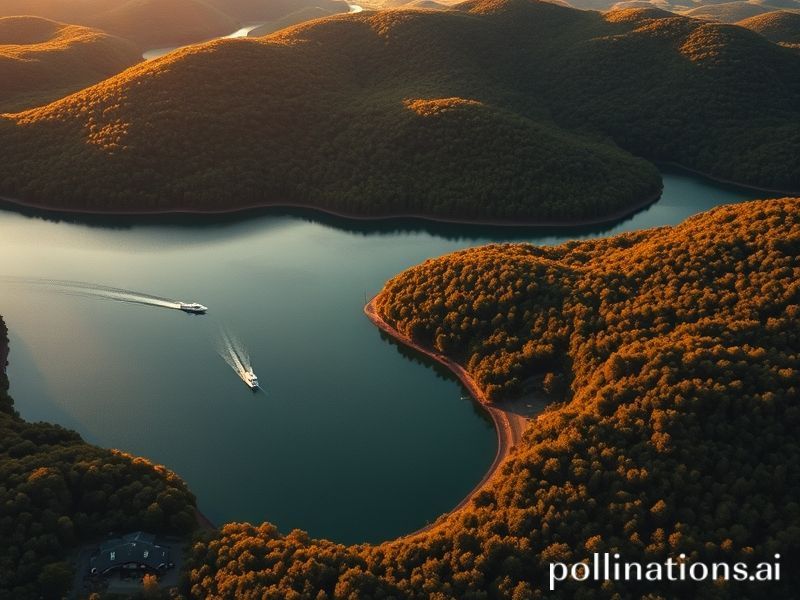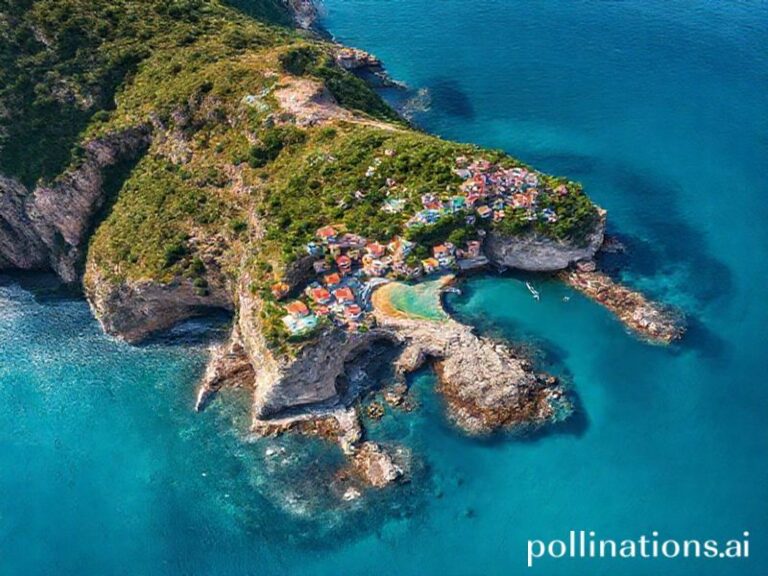From the Ozarks to Offshore: How Netflix’s Favorite Money-Laundering Family Became a Global Blueprint
Ozark: A Netflix Parable for the Age of Global Money Laundering
By our man in Geneva, where the lake is clean and the numbered accounts cleaner still
The Ozark Mountains—once famous for folk music, meth labs, and the kind of poverty that makes EU agricultural subsidies look like a Saudi prince’s pocket money—have become, thanks to Netflix, a shorthand for the universal truth that every paradise is just one offshore shell company away from becoming a laundromat. From Lagos to Lichtenstein, viewers recognize the Byrde family’s journey: move the cash, placate the cartel, pretend the kids still believe in college brochures. It’s the American Dream with AML (anti-money-laundering) compliance issues.
Internationally, the show landed like a TED Talk delivered by a gunman: “How to Wash Cash in Ten Easy Episodes.” Mexican prosecutors binge it for tips on what not to leave in the evidence room; EU regulators use it as a bedtime story to scare trainee auditors. Even the Swiss—who’ve spent three centuries perfecting the polite shrug—admit the series is basically a documentary with better lighting. When the Byrdes open a casino to rinse heroin profits, Geneva private bankers send congratulatory fruit baskets, mostly because they can’t legally charge consulting fees anymore.
The global takeaway is refreshingly egalitarian. Whether you’re a Nigerian yahoo boy, a Moscow oligarch, or the heir to a Seoul chaebol, the mechanics are identical: inflate revenue, create fictitious suppliers, pray the auditor is overworked. The only regional variant is the body-disposal protocol. Acid barrels in Missouri? Too provincial. Dubai prefers feeding corpses to captive sharks—carbon footprint negligible, plus it entertains the hotel guests. In the Philippines, you just wait for the next “war on drugs” and let the police log the paperwork. Efficiency, thy name is outsourcing.
Ozark also offers a masterclass in soft-power diplomacy. The United States exports two things with undiminished vigor: pop culture and the dollar. Combine both and you get a streaming series that teaches foreign kleptocrats how to park the second in the first. Washington may sermonize about transparency, but Hollywood merchandizes the blueprints for opacity. Somewhere in Pyongyang, a Kim nephew is taking notes: “Step one, incorporate in Delaware; step two, buy lakefront property; step three, adopt local orphans for optics.” The DPRK’s nuclear program runs on counterfeit Benjamins, but even dictators like character development.
Critics complain the finale was too bleak. They must’ve missed the news. In the same week the Byrdes escaped justice, Credit Suisse (RIP, 1856-2023) confessed to decades of laundering for cartels, warlords, and that one tennis player nobody liked. Shareholders gasped, then voted themselves retention bonuses. Art imitates life; life files the serial numbers off and sells it back as premium content. Meanwhile, the Financial Action Task Force—an inter-governmental body with the motivational charisma of a substitute math teacher—puts out another color-coded report nobody reads except North Korean hackers looking for firewall weaknesses.
What does Ozark mean for the average, non-narcotic entrepreneur in Jakarta or Johannesburg? Simply that geography is no longer destiny; jurisdiction is. Pick the right flag of convenience, register a charity for blind alpacas, and presto—your embezzled infrastructure budget becomes “consulting revenue.” The show’s true villain isn’t a heroin-sniffing Mexican priest; it’s the complacent belief that any system, anywhere, is still too principled to fold for a 2% facilitation fee. Spoiler: principles are like Swiss cheese—more holes than substance, best served at boardroom temperature.
As the credits roll, the camera lingers on the Byrdes’ new McMansion, safely inside the Washington Beltway. It could just as easily be a gated villa in Nairobi’s Karen district or a penthouse overlooking Istanbul’s Bosphorus. The message is universal: the laundry cycle is permanent press, and we’re all wearing the same stained linen. So relax, pour yourself a locally sourced, ethically questionable cocktail, and remember—if the water looks clean, you’re probably the rinse.







